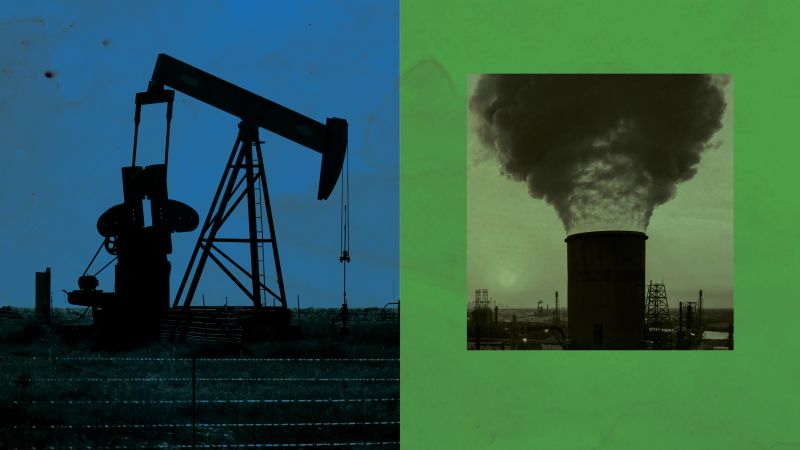The recent directives from the Environmental Protection Agency (EPA) have sparked significant concern among environmental advocates and state regulators alike. According to multiple sources, including insiders within the EPA, the agency has instructed its staff overseeing the industrialized Midwest—a region historically affected by pollution—not to pursue enforcement actions against fossil fuel companies. This reported halt in enforcement activities appears to be part of a broader strategy developed under the Biden administration, aimed at relaxing regulations that had previously aimed to protect the environment and public health.
These developments reportedly stem from verbal directives provided to EPA staff over the past few months. Insiders indicate that there is significant internal pressure to reduce scrutiny of the fossil fuel industry. This directive aligns with broader deregulation efforts championed by EPA Administrator Lee Zeldin as part of an agenda supported by President Donald Trump, who promised during his campaign to roll back what he labeled as “burdensome” regulations impacting oil and gas industries and to increase production levels.
Historical context shows that these new directives signal a significant shift for the EPA, particularly as they aim to dismantle climate and pollution regulations established during the tenure of former President Joe Biden. In recent announcements, Zeldin proposed to lift limits on air toxins and to repeal rules that successfully curtailed carbon emissions from coal and gas-powered plants. According to sources with close ties to the agency, even prior to formalizing these policy changes, the EPA had begun retracting its enforcement capabilities in ways that had not been observed in prior transitions between administrations.
In various discussions, EPA staff have expressed concern about the implications of losing a significant enforcement partner in the U.S. Department of Justice (DOJ), especially within its environmental division. Staff cuts—including buyouts and layoffs—have diminished the DOJ’s capacity to contribute meaningfully to environmental enforcement. One EPA investigator noted that the agency is losing leverage, telling CNN, “The companies are scoffing at the cops.”
Concerns over the changing dynamics within the EPA escalated early in Trump’s second term when staff were asked to highlight fossil fuel violation cases they were overseeing. It was emphasized that the energy sector’s violations would be supremely monitored, indicating a significant shift in priority. Four sources from the EPA’s Region 5 office, which includes states such as Ohio, disclosed recently that enforcement officials have been made aware of a “pause” on actions tied to oil and gas violations in internal meetings. The leadership within the agency appears to interpret these new guidelines as a signal to alter their enforcement strategies significantly.
With Region 5 overseeing active oil and gas operations, including one of the largest refineries worldwide, the implications of such enforcement changes are alarming for environmental safeguarding in these areas. Observationally, Region 6—encompassing oil-rich states such as Texas—has seen a similar retreat in enforcement efforts. Despite ongoing fossil fuel violations being documented, officials report a lack of direction for advancing any of these troubling cases, which raises concerns about environmental health in areas traditionally monitored rigorously.
The initial data from the enforcement actions within these early months of Trump’s second term show alarming trends. The overall count of EPA enforcement cases initiated or closed across several sectors plummeted by over 32% compared to the first quarter of the Biden administration, reflecting an operational decline in effectiveness. Notably, records reveal an astounding 60% decrease in actions initiated or resolved compared to the corresponding time during Trump’s first tenure in office.
The ramifications of these enforcement pauses extend beyond the operational level of the EPA; they convey dangers for public health and environmental prosperity throughout the nation. As a former senior EPA official, David Uhlmann, pointed out, the cessation of enforcement specifically targeting fossil fuel industries places the health and safety of communities at risk, while simultaneously engendering competitive advantages for companies that breach environmental laws on a routine basis.
EPA officials maintain a narrative asserting that enforcement continues, emphasizing that inspections will proceed as usual with the intent of prioritizing human health and safety; however, critics argue that the ongoing evidence presents a story that contradicts these claims. While the EPA emphasizes its continued operation within the fossil fuel sector, most of the successful actions cited were initiated under the Biden administration, illustrating a significant operational shift.
This shift has been met with pushback not only from environmental advocates but also from members within the fossil fuel industry itself, demonstrating an intriguing dynamic where companies see the value in maintaining stringent pollution standards. Reports indicate that natural gas companies risk losing economically valuable resources through methane leaks due to relaxed enforcement, illustrating the paradox of regulation versus profitability.
Ultimately, experts assert that the consequences of these enforcement changes could amplify public health challenges, environmental degradation, and contribute to our climate crisis. While the legal and regulatory apparatus is reshaping rapidly under the current administration, continued advocacy and vigilance are essential to preserve the evocative balance between industrial growth and environmental stewardship.



